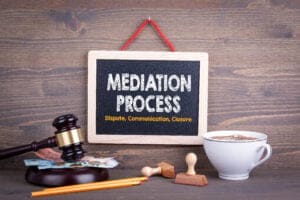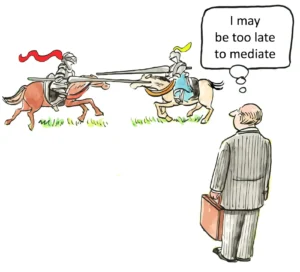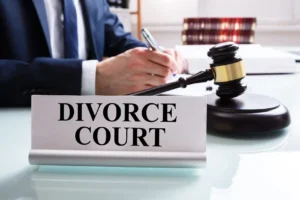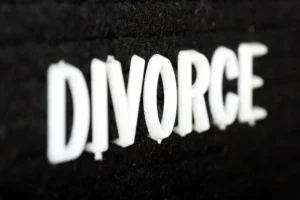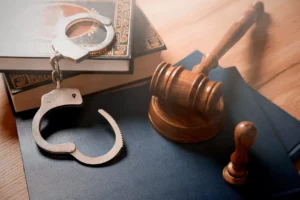Prosecutorial Misconduct Examples: Grounds for Appeal or Dismissal
The American criminal justice system is built on the premise that prosecutors serve not merely as advocates for conviction, but as ministers of justice. When prosecutors overstep this role, the consequences can be profound, undermining the integrity of the courts and threatening the rights of the accused. Prosecutorial misconduct examples: grounds for appeal or dismissal is a topic that deserves careful scrutiny from every legal professional, as it cuts to the heart of constitutional due process and the legitimacy of criminal convictions.
At its core, prosecutorial misconduct refers to actions by prosecutors that violate ethical rules or legal standards governing criminal trials. These violations can range from the subtle to the egregious, but all share the potential to prejudice defendants and erode public confidence in the justice system. The most common forms of prosecutorial misconduct include withholding exculpatory evidence, making improper statements to the jury, presenting false or misleading evidence, and tampering with witnesses. Each of these can serve as grounds for a mistrial, appeal, or even outright dismissal of charges, depending on the severity and impact on the case.
One of the most notorious forms of misconduct is the Brady violation—the failure to disclose evidence favorable to the defense. The Supreme Court’s landmark decision in Brady v. Maryland established that prosecutors have a constitutional duty to turn over material evidence that could exonerate the accused or undermine the credibility of prosecution witnesses. When prosecutors withhold such evidence, whether intentionally or through gross negligence, they violate the defendant’s right to a fair trial. Courts take Brady violations seriously, and when discovered, they can lead to reversal of convictions, new trials, or in some cases, dismissal of charges altogether. Recent high-profile cases, including capital prosecutions, have highlighted the devastating consequences of such misconduct, especially when it results in wrongful convictions or death sentences.
Improper arguments during trial also constitute a significant category of prosecutorial misconduct. Prosecutors are bound by ethical rules that prohibit them from making inflammatory remarks, expressing personal opinions about the guilt of the defendant, or urging the jury to convict based on factors outside the evidence. Examples include appealing to the jury’s emotions, mischaracterizing evidence, or commenting on the defendant’s decision not to testify—an explicit violation of the Fifth Amendment. When prosecutors cross these lines, defense attorneys may object and request curative instructions from the judge. In severe cases, or when the cumulative effect of improper arguments is particularly prejudicial, such conduct can serve as grounds for a mistrial or case dismissal. These ethical breaches are not mere technicalities; they strike at the core of a defendant’s right to a fair and impartial trial.
Another serious form of misconduct is witness tampering. Prosecutors wield significant influence over witnesses, but when that power is abused—through intimidation, coercion, or offering improper incentives—the integrity of the entire prosecution is called into question. Examples include threatening witnesses with prosecution if they do not testify as desired, offering leniency in unrelated cases in exchange for favorable testimony, or coaching witnesses to alter their statements. When such actions are uncovered, they can devastate the prosecution’s case and may result in dismissal of charges to remedy the misconduct and deter similar behavior in the future. Courts are especially vigilant in policing this form of misconduct, recognizing its corrosive effect on the truth-seeking function of the trial.
Presenting false or misleading evidence is another egregious example of prosecutorial misconduct. This can include knowingly allowing perjured testimony, introducing evidence the prosecutor knows to be false, or making statements in court that are not supported by the record. The law is clear: a prosecutor may not knowingly present false evidence to secure a conviction. When this occurs, the courts have not hesitated to overturn convictions, grant new trials, or, in extreme cases, dismiss charges outright. The Supreme Court has repeatedly emphasized that the government’s obligation is not to win at all costs, but to ensure that justice is done.
Discriminatory jury selection practices also fall under the umbrella of prosecutorial misconduct. The Constitution forbids prosecutors from excluding potential jurors on the basis of race, gender, or other protected characteristics. When prosecutors engage in such discrimination, whether overtly or through pretextual challenges, they violate the equal protection rights of defendants and jurors alike. Courts have reversed convictions and ordered new trials upon finding that prosecutors used peremptory challenges in a discriminatory manner. These cases underscore the importance of vigilance in the jury selection process and the need for attorneys to challenge improper conduct at every stage.
The impact of prosecutorial misconduct is not limited to the context of a criminal trial. Misconduct can occur at any stage of the criminal court process, from pre-trial investigations to post-conviction proceedings. For example, bringing criminal charges in bad faith, without a realistic hope of conviction, is a violation of both ethical and legal standards. Similarly, making prejudicial statements to the media that taint the jury pool, or engaging in improper plea-bargaining tactics, can all constitute misconduct with serious consequences for the fairness of the proceedings.
The remedies for prosecutorial misconduct are varied and depend on the nature and severity of the violation. A judge may dismiss the charges, admonish the jury to disregard certain evidence or comments, or grant a motion for a new trial. In rare cases, especially when misconduct is willful and results in significant prejudice to the defendant, courts may dismiss the indictment entirely. However, proving misconduct is not easy. Defendants must typically show that the misconduct was both material and prejudicial—that it affected the outcome of the trial and that the defendant was harmed as a result. Even when misconduct is proven, courts may opt for less drastic remedies, such as ordering a new trial or imposing sanctions on the prosecutor.
Appellate review of prosecutorial misconduct claims is rigorous. Appellate courts will consider whether there is a reasonable likelihood that the jury construed or applied any of the complained-of remarks or actions in an objectionable fashion. The standard for prejudice is high: misconduct must have materially affected the trial outcome or deprived the defendant of a fundamentally fair trial. If the evidence against the accused was overwhelming, or if the misconduct did not materially affect the case, appellate courts may deem the error harmless and uphold the conviction. However, when the cumulative impact of prosecutorial misconduct is found to have influenced the verdict, appellate courts have not hesitated to reverse convictions or order new trials.
Recent analysis by organizations such as the Death Penalty Information Center has revealed the pervasive nature of prosecutorial misconduct, particularly in capital cases. More than 550 death penalty reversals or exonerations have been linked to prosecutorial misconduct, representing a significant proportion of all death sentences imposed in the United States in recent decades. These cases highlight the urgent need for systemic reform and greater accountability for prosecutors who abuse their power. The public’s trust in the justice system depends on the assurance that convictions are obtained fairly and in accordance with constitutional principles.
High-profile cases have brought renewed attention to the issue of prosecutorial misconduct. The Supreme Court’s order for a new trial in the Richard Glossip case, for example, was based on findings that the prosecution had knowingly elicited false testimony and suppressed exculpatory evidence. Such cases are not isolated incidents; they reflect broader patterns of misconduct that, when left unchecked, can lead to wrongful convictions and, in the most tragic cases, the execution of innocent individuals. The legal community must remain vigilant in identifying, challenging, and remedying prosecutorial misconduct wherever it occurs.
Defense attorneys play a critical role in protecting defendants’ rights against prosecutorial misconduct. When misconduct is suspected, attorneys may file motions to dismiss charges, suppress tainted evidence, or request a mistrial. If misconduct is discovered after conviction, appeals can be filed seeking to overturn the verdict or secure a new trial. Reporting the misconduct to state bar associations or oversight bodies is also essential to ensure that prosecutors are held accountable for their actions. The fight for justice does not end with the verdict; it continues through every stage of the appellate process and beyond.
The ethical obligations of prosecutors are clear: they must seek justice, not merely convictions. When they fail in this duty, the consequences can be devastating for defendants, victims, and the broader community. Prosecutorial misconduct examples: grounds for appeal or dismissal serve as a stark reminder of the need for constant vigilance, robust defense advocacy, and systemic reform. The legal profession must continue to hold prosecutors to the highest standards of integrity, ensuring that the pursuit of justice remains the guiding principle of our criminal courts.
The path forward involves not only litigating individual cases of misconduct but also advocating for systemic changes that promote transparency, accountability, and fairness. This includes improving bar disciplinary processes, enhancing oversight of prosecutorial conduct, and fostering a culture within prosecutors’ offices that prioritizes ethical behavior over winning at all costs. Only by addressing the root causes of misconduct and implementing meaningful reforms can the justice system restore public confidence and fulfill its promise of equal justice under law.
For legal professionals, understanding the full range of prosecutorial misconduct examples: grounds for appeal or dismissal is essential. Whether it’s a Brady violation, improper argument, witness tampering, or presenting false evidence, each instance represents a threat to the fairness of the trial and the legitimacy of the verdict. Vigilant defense, rigorous appellate review, and a steadfast commitment to ethical principles are the best safeguards against the corrosive effects of prosecutorial misconduct. In the end, the health of the justice system depends on the willingness of all participants—judges, attorneys, and the public—to demand accountability and to uphold the rule of law.
Citations:
- Understanding Prosecutorial Misconduct Impact
- Prosecutorial Misconduct and Wrongful Convictions
- Does Misconduct Lead to Case Dismissal
- ACLU Court Cases on Misconduct
- Supreme Court Case Richard Glossip
- Appellate Guide to Prosecutorial Misconduct
- Prosecutorial Misconduct Dismissal Insights
- Appeals Law Group on Misconduct
- NACDL on Prosecutorial Misconduct
- Misconduct in Death Penalty Cases
- Prosecutorial Misconduct as Appeal Grounds
- What is Prosecutorial Misconduct
- Promoting Prosecutorial Accountability Resolution
- Understanding Prosecutorial Misconduct
- El Paso Prosecutorial Misconduct Ruling
- Misconduct and Wrongful Convictions
- Alec Baldwin Charges Overview
- Prosecutorial Misconduct Federal Docket
- Challenging Misconduct on Appeal
- Prosecutorial Misconduct Appeal Grounds
- Prosecutorial Misconduct Case Studies
- Misconduct Requiring Case Dismissal
- Federal Prosecutorial Misconduct Motions
- The Appeal on Prosecutorial Misconduct
- Westlaw on Prosecutorial Misconduct
- Appealing Unethical Prosecutor Behavior
- NACDL on Prosecutorial Misconduct
- JMU Research on Misconduct
- Motion to Dismiss for Misconduct
- Columbia Journalism on Misconduct
- ACLU on Prosecutorial Misconduct
- CCLA on Prosecutorial Misconduct
- Prosecutorial Misconduct Case Law
- Brennan Center on Prosecutorial Reform
- NACDL Calls for Misconduct Action
- Prosecutorial Accountability Policy Issues
- Prosecutorial Misconduct Book 2024
- Myths on Prosecutors and Reform
- Misconduct in Virginia Capital Case
- NACDL on Prosecutorial Misconduct
- California Bar Rule 5-110
- ABA Prosecution Function Standards
- Prosecutorial Misconduct in California
- Legal Ethics on Prosecutorial Misconduct
- Montana Courts on Misconduct
- NDAA National Prosecution Standards
- Understanding Prosecutorial Misconduct
- SDAP Research on Misconduct
- What is Prosecutorial Misconduct
- NDAA Report on Misconduct
- Vouching as Prosecutorial Misconduct
- Improper Burden Shift by Prosecutor
- Challenges in Prosecutorial Accountability
- Dickinson Law Review Article
- Innocence Center on Misconduct
- SDAP Research on Misconduct
- Prosecutorial Misconduct in Justice System
- Official Misconduct by Innocence Project
- RWU Faculty on Misconduct
- NY Wrongful Conviction Unit
- Michigan Law Article on Misconduct
- Michigan Law Sentence Reduction
- OU Law Review on Misconduct
- NACDL Henning on Misconduct
- Fordham Law Review on Misconduct
- Capital Punishment Prosecutorial Misconduct
- Fair and Just Prosecution Accountability
- Public Integrity on Misconduct
- Policy on Prosecutorial Reform
- OJP on Prosecutorial Misconduct
- Innocence Project on Misconduct Appeals
- Documenting Misconduct in Capital Cases
- Promoting Prosecutorial Accountability Resolution
- Alec Baldwin Charges Overview
- Oklahoma Prosecutorial Misconduct Study
- Report on Oklahoma Justice Reform
- Grounds to Appeal in California
- Does Misconduct Lead to Dismissal
- Wikipedia on Prosecutorial Misconduct
- Armed Forces Digest on Misconduct
- LMU Law Review on Misconduct
- Fair Fight on Government Misconduct
- Washington University Law Review
- Quattrone Center on Prosecutorial Misconduct
- Yale Law Journal on Accountability
- Georgetown Legal Ethics Journal





